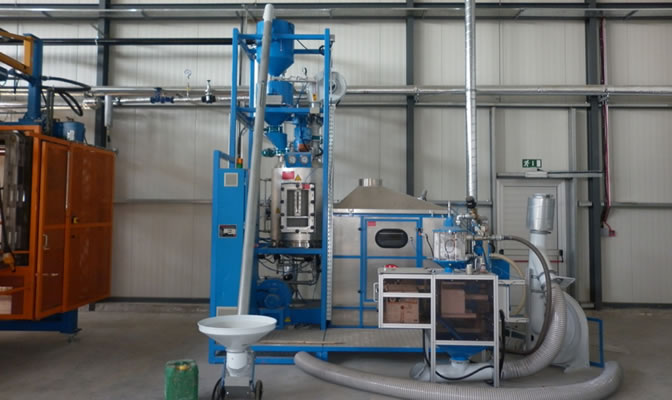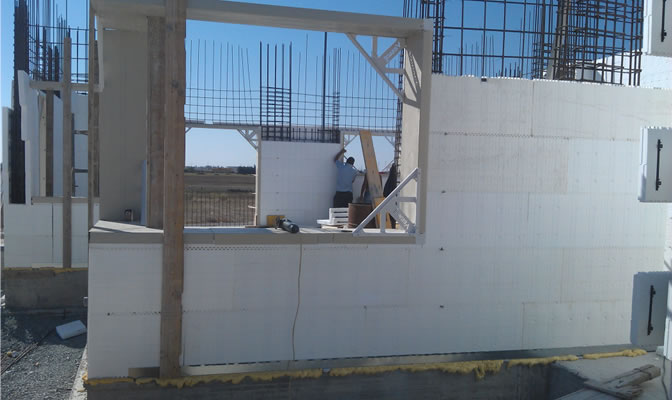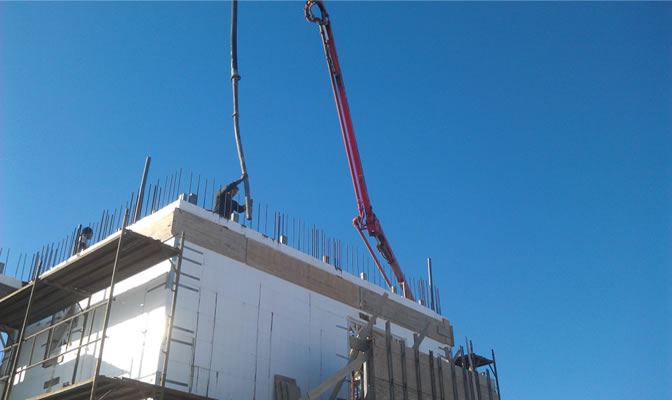The expanded polystyrene (EPS), is a purely isotropic inert, lightweight porous material, and is considered an ecological material. The production of EPS polystyrene is environmentally friendly, since they are not used CFCs and other harmful chemicals (CFCs, HCFCs, HFCs, CO2).
EPS has no impact on the environment even in landfill sites or in incinerators, nor does it contain substances that could pollute the air or soil. The manufacture of EPS solutions does not release hydrosoluable substances that could contaminate ground water supplies.Expanded polystyrene is 100% recyclable and can be reused to produce other materials such as lightweight concrete, recycled plastic etc. Apart from applications in the construction industry as an excellent insulation material, it is extensively used in the packaging industry.
EPS polystyrene is a rigid and tough, closed-cell foam made from the monomer styrene, a liquid hydrocarbon that is manufactured from petroleum. Pentane is used as the propellant reaction gas. EPS is made up of 98% air and only 2% of pure hydrocarbon material. EPS structures are produced through a process called steam moulding. The EPS tiny beads expand up to 60 times their initial volume, in a pressurized chamber with the aid of steam at temperatures 80-100oC. This expanding process is precisely timed to determine the size of the beads. The strength of the EPS structure is determined by the density of the expanded beads. The beads are stored in silos to dehydrate and stabilize to be ready for further processing. In the final stage the EPS beads are placed in metal molds in the moulding machines, and with fusion they expand further, bond together and takes the shape of the mold.
EPS thermal conductivity λ, depends on the quality of the raw material and the density of the EPS structure. It varies from 0.045 W/mK for EPS30 of density 10 kg/m3 to 0.033 W/mK for EPS200 of densities 26-30 kg/m3. Some more properties of EPS200 are (1) compressive strength 200-250 KPa for 10% deformation, (2) continues design load of 7 ton/ m3 for 2% deformation, (3) water absorption 0.5-1.5% by volume, (4) permeability resistance 40-150 μ (5) -50/+75oC minimum / maximum temperature resistance, (6) chemicals during production – none (7) aging material – none (8) reaction to fire – non toxic.
For the manufacturing of our ICF Blocks products we use EPS200.



